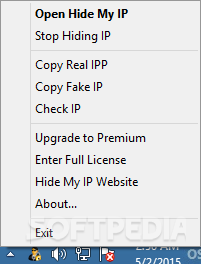Surfing the Internet leaves more footprints than you might think. Whenever you visit a website, the site operator will know your approximate location and some technical details about your PC, such as which browser version you are using.
In the background, your PC transmits numerous data, mostly unnoticed. Computer experts tell you here how others spy on you and that means there are to protect yourself. Usually, only a few clicks are enough to be much safer on the net. With myip this is a very important bit now.
Which data tracks make me identifiable?

If you open a web page, the controlled server learns your IP address. This number, which can be compared to a home or telephone number, is assigned by your Internet service provider to your router. It allows conclusions about your place of residence.
A precise identification on street level is not possible; nevertheless, all loaded sides learn your approximate residential area. In addition to your IP address, your PC also transmits information about the operating system, the screen resolution, your browser plug-ins, and installed fonts.
Websites also recognize you by using so-called cookies: These small text files are stored on your hard drive as soon as you visit them. Flash cookies make it even possible to follow them across all browsers: Regardless of the surfing program used, advertising companies get a detailed picture of their browsing habits.
What do third parties do with my data?
The data transmitted in the background uses websites to tailor their content to you. For example, if a web page recognizes you by means of a cookie, it greets you with your name.
But it is also possible that websites display targeted advertising: For example, you will receive suggestions for the purchase of products that match the entered search words and that you can buy in your area. Statistical surveys are also possible. Some websites regularly publish an overview of how many of their visitors use which operating system.
Especially tricky: Specially prepared websites detect weaknesses in your software and send malware to your PC. Anyone who knows your e-mail address can also send you intrusive advertising e-mails. In many cases, unsubscribing from email advertising will be unsuccessful, and you will continue to receive unsolicited messages.
The fingerprint of your browser
Even if your IP address changes due to a new Internet connection and you delete treacherous cookies, websites often still recognize you. The sum of the transmitted information is sufficient in many cases.
How clearly your identity can be assigned, shows the US-American Electronic Frontier Foundation (EFF) with the online service. When you run the test, experts analyze the information you send automatically, such as the operating system, resolution, or browser plug-ins, and calculates how many PCs with the same configuration have tested so far. The likelihood is very high that your browser is unique in the 3.7 million systems reviewed so far as of January 2014. The result is a digital fingerprint of your browser that you can theoretically identify at any time.



